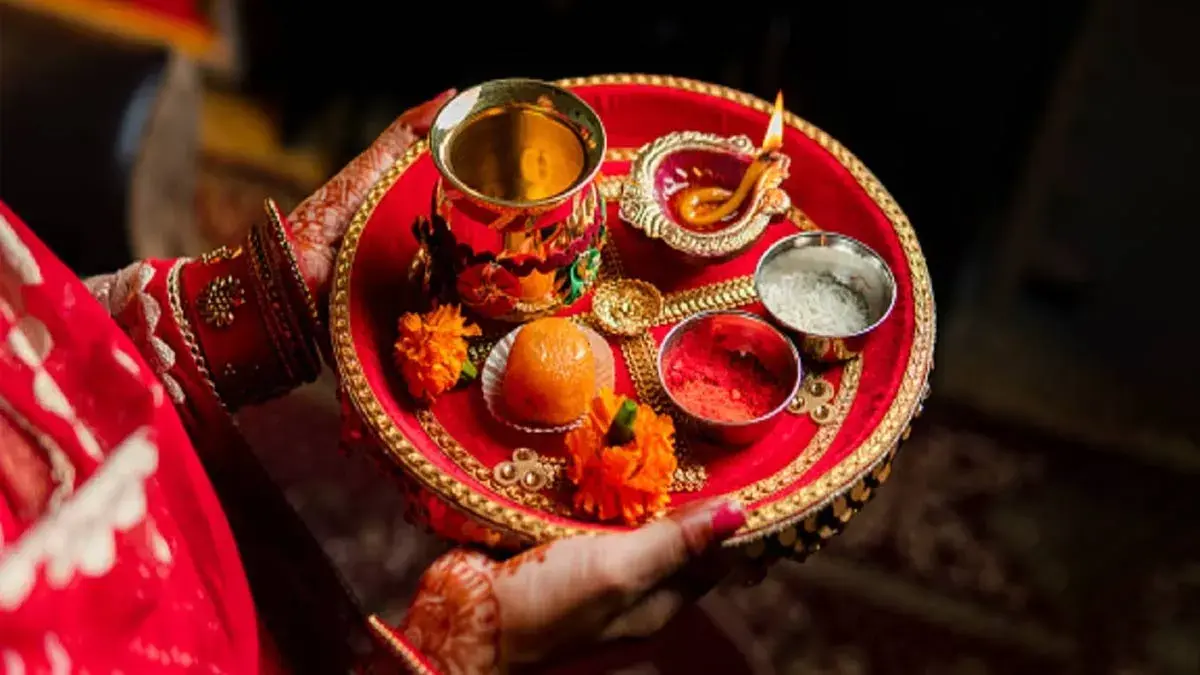Updated 13 October 2024 at 10:34 IST
Karwa Chauth 2024: Date, Rituals, and Significance
The Karwa Chauth festival starts early with women eating Sargi before the sunrise prepared by their mothers-in-law.
- Utility News
- 2 min read

Karwa Chauth 2024: Karwa Chauth is one of the most auspicious festivals for married women in North India which symbolizes the bond of love, devotion, and commitment between husband and wife.
This year the festival will be celebrated on 20 October.
This festival falls on the fourth day after the full moon (Purnima) in the Hindu month of Kartik according to the Purnimant calendar, while in the Amanta calendar followed in parts of Western and Southern India, it is observed in the month of Ashwin.
Key Timings for Karwa Chauth 2024:
Karwa Chauth: Sunday, October 20, 2024
Puja Muhurat: 5:46 PM to 7:02 PM
Upavasa (Fasting) Time: 6:25 AM to 7:54 PM
Moonrise: 7:54 PM
Chaturthi Tithi: Begins at 6:46 AM on October 20 and ends at 4:16 AM on October 21.
Advertisement
The Legend of Karwa Chauth
One of the most well-known legends behind Karwa Chauth is the story of Queen Veeravati.
While observing her first fast, Veeravati fainted from hunger. Concerned, her brothers tricked her into breaking her fast early by pretending the moon had risen. Sadly, her husband died soon after. Devastated, she prayed to Goddess Parvati, who advised her to complete the fast with devotion, which miraculously brought her husband back to life, showcasing the power of love and faith.
Advertisement
Rituals of Karwa Chauth
The festival starts early with women eating Sargi before the sunrise prepared by their mothers-in-law. Following this, they fast from sunrise to moonrise without consuming food or water.
In the evening, they assemble for the Puja, dressed in colourful outfits, especially shades of red, symbolizing marital bliss. They offer water, known as Argha, to the moon using a clay pot (Karwa), which is later given in charity. The day ends when they spot the moon and break their fast, praying for their husbands' long life and well-being.
Published By : Srujani Mohinta
Published On: 13 October 2024 at 10:34 IST
